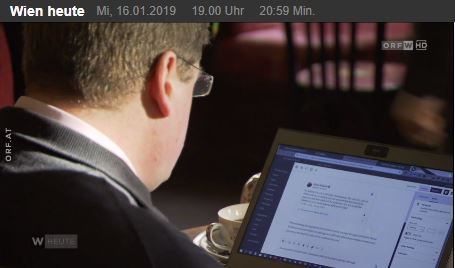From the outset, I have always advocated that naturalisation is a deeply personal issue, and is heavily dependent on personal circumstances. My own personal first foray into looking into naturalisation and becoming an Austrian citizen, back in 2016 was to attend an event about taking Austrian citizenship held by a lawyer specialising in the field. Granted at that evening the audience were not only Britons, but in the last two and a half years the issue has become one of a hitherto unknown importance for Britons. At a live chat on Facebook that the well-meaning British ambassador oversaw, following on from a similar chat by an FCO staff member earlier that year(2017), it soon became apparent that the prime motivation for naturalisation would be to have certainty in uncertain times.
For me there was never the option to exercise my claim to another EU citizenship – those who had that opportunity, I fully supported in their intention to take an additional citizenship, and asked others considering it and waiting and saying why they haven’t acted upon it – the reasons were often their personal ones, which I can accept. Others waivered as the emotional bond of British citizenship and losing it was insurmountable for them. I have no problem with that – it is just one of the many factors that makes naturalisation and renouncing the citizenship of the country of one’s birth a deeply personal decision. Some acquaintances branded me a traitor (and not in an ironic or humourous way). They of course are welcome to their own view, but that won’t change the fact that I naturalised for me and for the welfare of my family.
Having blogged about the Referendum that led to the Decision of the United Kingdom to leave the European Union from it being called and discovering that I would not be eligible to vote in it, through to waking up on my 39th birthday as a father of a three month old son, unsure of what the future would hold. Leaving the UK from a family party in March 2017, I resolved that I would not enter the UK as a British citizen again. I still have not visited again since. The journey has been a roller-coaster over the last two years, and one which for Britons in the EU will continue to be so for a while yet, although there are promising signs that Austria will be enacting law to underpin the recent messages from the Foreign Minister (see below) and the Federal Chancellery that suggest the future might be more certain again for the approx. 11,000 Britons in Austria, after a slightly alarming remark from Andreas Pölzl in the Innenministerium.
I’ll be following the legislation that comes in on its passage through parliament. I hope for Britons in Austria that the passage is a swift one, without any delays or unpleasant surprises, and that the outcome is a satisfactory one.
The Highs of Naturalisation
In moments of doubt it was sometimes difficult to keep on going, although there were definitely high points along the way.
Contributing to the debate
Part of my motivation for this blog was to also resolve the many half-truths that were circulating about “dual citizenship/nationality”, the approach of “revoke and resume” and to back up my arguments with references from Austrian law. Similarly, in a time when many Britons felt more uncertain about their future than before, I wanted to reassure those considering the route towards Austrian citizen. The experience, particularly with MA35 and attending townhall meetings organised with DExEU and Embassy staff, has also helped me to deepen my interest in politics, to ask incisive questions and put “experts” on the spot.
Media Appearances
As my blog has gained traction, started to be read by a bigger audience and positive feedback has been received, there has been a knock-on effect, and I have been asked to speak on television and radio on a national level. The unexpected positive side of this has been that people I had lost contact with have got back in touch – they heard me on the radio, saw me on television and it motivated them to get back in touch.
It has proven a fascinating insight into the workings of the media and how news is made. I’ve learned what the media wants to hear, how to articulate soundbites in German to suit the needs of the broadcasters and got to understand about being interviewed on various subjects, speaking passionately and how to get to the soundbite that the media wish to have. I’ve appeared on television, in print, on the radio, in English and German, and have of coursed blogged the entire process.
Incidentally this post was partially written when I appeared on a segment in ORF’s Wien Heute on 16 January 2019.
Old and New friendships
I’ve made new friends and acquaintances – contact has been established to and with other Britons in similar circumstances, others wanting informal advice – I realise of course that the advice I give cannot be a substitute for professional advice, although often reassurance is often needed on a human level, and some of the hurdles that others face in going through the same process have been overcome through some suggestions (e.g. helping them with drafting the CV that they need, checking that it corresponds directly to the times on their Versicherungsdatenauszug). And of course, old friendships has been rekindled, contact made after several years again – it is a good feeling not to be a Karteileiche in someone’s phone contact list!
The Milestones
As each stage of the process was completed, there was a definite buzz – each letter, positive e-mail, and appointment negotiated were milestones. But there were other smaller milestones too – not just the Antragstermin, the passing of the test, the Zusicherungsbescheid being granted, the ceremony, the passport arriving in the post and last but by no means least the renunciation. There were other milestones, such as being told that no more papers were required, that the investigative procedure was concluded, that they were satisfied with everything.
The Achievement
When I attended an event about naturalisation given by a lawyer, one of the takeaways was that from Antragstermin to naturalisation it was usually 15-18 months, and that with a lawyer it might be typically cut from 9-12 months. In my case, in the end, the wait from Infotermin to Antragstermin excluded, it took eight and a half months. In my wife’s case as a third country citizen naturalising, due to problems admitted by MA35 that they had “difficulties” in 2014-15 her process took nearly four years. Fortunately, I also managed for my son to naturalise with me, and thereby for my twins, born just a few weeks after my becoming Austrian, that they are Austrian from birth, entitling them, should they ever wish to naturalise as British to exercise a Beibehaltungsrecht to remain Austrian in the process.

